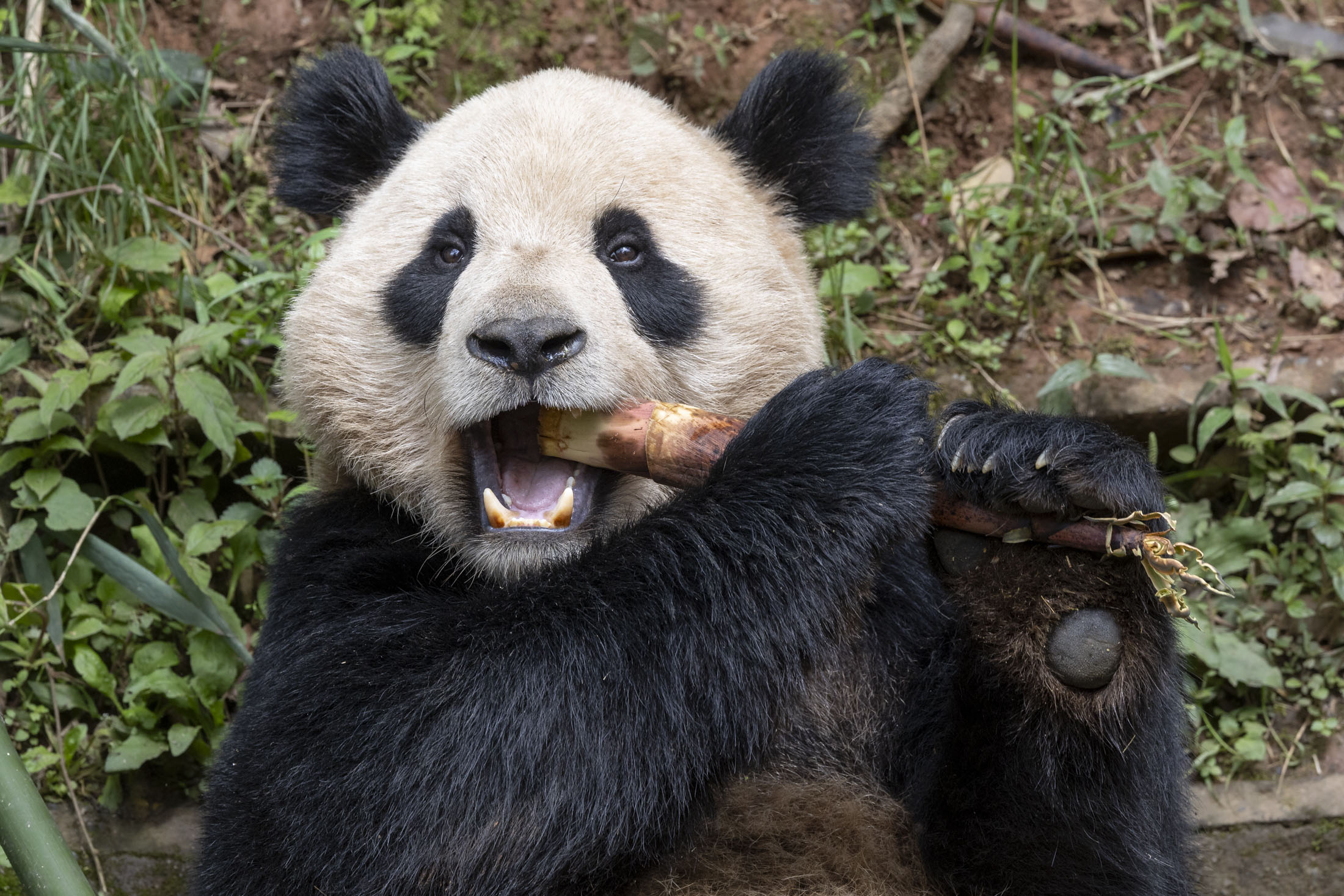Two adorable Sumatran tiger cubs were born at the San Diego Zoo Safari Park this month, the first of the critically endangered species to be born at the park through their team's conservation efforts in 7 years, according to the zoo's Wildlife Alliance.
Video shared by the San Diego Zoo Wildlife Alliance shows the two tiny cubs, a male and a female, nursing from their mother Diana -- a first-time mother who is "extremely attentive and gentle." They were born on July 12 and appear to be strong, according to the zookeepers who have been keeping a close eye on their development. At just two weeks old, the cubs are about as big as their mom's paw.
"We are elated about the birth of these tiger cubs," said Lisa Peterson, executive director of the San Diego Zoo Safari Park. "It has been years since we've had cubs at Tiger Trail, and we can't wait to share them with the community."
The birth announcement came days before Global Tiger Day, a day to raise support for tiger conservation efforts like that of the San Diego Zoo, which is celebrated on July 29.
Get San Diego local news, weather forecasts, sports and lifestyle stories to your inbox. Sign up for NBC San Diego newsletters.
There are an estimated 400 to 600 Sumatran tigers remaining on Earth, according to the zoo. They are listed as Critically Endangered on the International Union for Conservation of Nature Red List of Threatened Species.
"These births are so important to the conservation of this species," Peterson said. "Our hope is these cubs will provide an opportunity for our guests to gain a greater appreciation for tigers and the important need to conserve them in their native habitats."
Diana and her cubs will remain in her den for several weeks.
Local
"This window of time is crucial, as it allows the youngsters to bond with and learn from their mother," zoo biologists said. "When Diana is ready, she will bring her cubs out of the den."
Wildlife care specialists estimate that will happen when the cubs are 8 to 10 weeks old.
According to the zoo, tigers face many challenges, including loss of habitat, challenges to human-wildlife coexistence and poaching. People can help protect tigers by avoiding products made with non-sustainable palm oil, an industry that harms tiger habitats; and by refusing to purchase items made from endangered wildlife.



